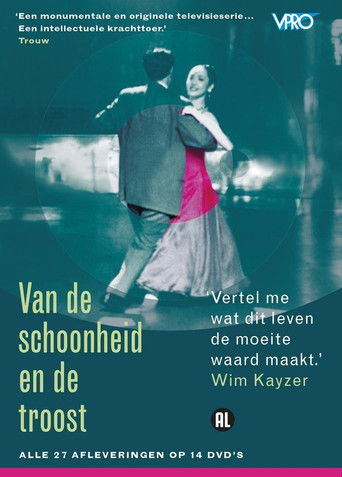
Rating:
0/10 by 0 users
Van de Schoonheid en de Troost (2000)
To his guests – artists, scientists, writers, philosophers and musicians – Wim Kayzer in Of Beauty and Consolation asks the philosophical question: What makes this life worth living?
Writing:
- Wim Kayzer
Release Date:
Sun, Jan 02, 2000
Country: NL
Language: En
Runtime: 2400
Country: NL
Language: En
Runtime: 2400
Season 1:

The African Nobel Prize winner for literature 1986 reflects on beauty and consolation during the civil war and his imprisonment during the military coup in Nigeria (1966) in which he was politically active. Soyinka tells the story of the singing by the prisoners on an execution day.

Reactionary, contrary, controversial: all labels that have been stuck on the British philosopher Roger Scruton over the years. Once a modernist philosopher, Scruton is now averse to modern philosophical movements such as poststructuralism and postmodernism. An important theme in his work is the alienation of contemporary man from the true values of life.

Interview with Jane Goodall, British writer and ethologist (in a studio). Goodall left for Africa at the age of 23 and has since been studying a group of wild chimpanzees in Gombe or Gombe Stream National Park in Tanzania. Goodall talks about nature, the rainforest as solace, love, the death of her husband, life after this life, grief, loneliness, mysticism, reconciliation, ecstasy, peacefulness, chimpanzees, telepathy, life goals, beauty, spiritual evolution, God, hope, awareness of death, fear, humor and dogs.

Interview with George Steiner, British literary critic and writer (in his home in Cambridge, Great Britain). Steiner talks about beauty, solace, fear, wonder, memory, his photographic memory and the extinction of collective memory: the fact that readers no longer recognize references in literature. In this context, Steiner reads a fragment from Ernest Hemingway's 'Fiesta: The sun also rises'. He also talks about Chinese wisdom following the excavation and reburial of terracotta statues from graves in Szetsjwan in China, Pasternak's code, the work of Sören Kierkegaard and Martin Heidegger, the innumerability/beauty of detail, the painting 'The Reading Philosopher' by Jean-Baptiste Siméon Chardin, falling in love, love and friendship, his passion for art, literature, music, philosophy, love for animals, humanity, self-knowledge, Franz Schubert, the dark side of life and atrocities such as those committed during the Second World War.

Interview with Vladimir Ashkenazy, Russian pianist and conductor (in the large rehearsal hall of the Deutsches Symphonie-Orchester in the building of the Sender Freies Berlin on Masurenallee in Berlin). Ashkenzay sits at a piano and talks about beauty, consolation, love and hope. He has chosen a number of pieces of music as examples of beauty and consolation, parts of which he plays at the piano.
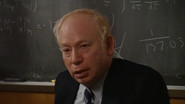
Interview with Steven Weinberg, American theoretical physicist (in his office at the University of Texas in Austin, Texas). Weinberg talks about the demythologization of the world and the consolation for this loss that can be found in the beauty of physical theories. He compares the beauty of the laws of physics (including Albert Einstein's theory of relativity) with perfection in artistic expressions such as the music of Johann Sebastian Bach. Attention is also paid to symmetrical principles, the insoluble question "why?" and the current trend to make something magical out of science. Weinberg explains why he disapproves of this trend. Weinberg's opinion that religion is a myth that will disappear is also discussed.
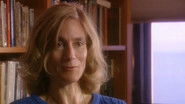
Interview with Martha Nussbaum (in her Chicago apartment, located on Lake Michigan, near Harold Washington Park). Nussbaum talks about what philosophy means to her, the book she is writing about human emotions, the attempt at reconciliation with her mother through this book, her childhood, the relationship she had with her father, her mother who became an alcoholic, and the marriage and divorce of her parents.
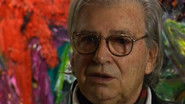
Interview with Karel Appel, Dutch painter. Appel has specially selected eight of his paintings for the interview as symbols of beauty and comfort. Appel talks about these eight paintings, his way of working, his studios, mixing different colors of paint, the color red, his birthplace Amsterdam, his youth, wandering the streets in big cities at night, being deeply affected by objects or events, the work of Rembrandt and Van Gogh and the death of his wife. In addition, at Kayzer's request, he reads one of his poems about Amsterdam (from his poetry collection 'Ode aan het rood').
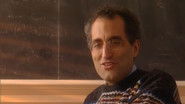
Interview with Edward Witten, American theoretical physicist (in a room at the Institute for Advanced Study in Princeton, New Jersey). Witten talks about solving physics riddles, developments in his field, happiness, religion, skepticism, the Big Bang, quantum mechanics, relativity theory, string theory, and the concepts of space and time.
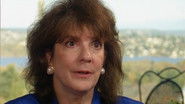
Interview with Elizabeth Loftus, American psychologist (in her home in Seattle, overlooking Union Bay, a bay in Lake Washington). The interview is preceded by the story of a couple who are in therapy with Loftus. They tell about their daughter who has (wrongly) accused her father of sexual abuse. The couple sought help from Loftus, because she specializes in the influence of memories on memory, also known as the influence of suggestion (by therapists) on memory.
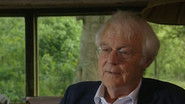
Interview with Rutger Kopland, Dutch poet (pseudonym of Rudy van den Hoofdakker, psychiatrist) (in his garden house/study in Glimmen, located on the Assen - Groningen railway line). Kopland talks about his daughters, his youth, happiness, adulthood versus the youthful perspective, his grandparents, health, his heart problems/infarction, the emotional charge and intensity of memories, melancholy, glorification of childhood, homesickness, poetry, the experience of comfort and beauty, finiteness, (death) fear, his mother and father and their death, emotion and fascination. Kopland recites some of his poems during the interview.
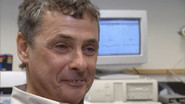
Interview with Gary Lynch (in a converted workspace trailer next to the buildings of the Center for the Neurobiology of Learning and Memory at the University of California, Irvine, as well as in the center's lab). Lynch talks about his unhappy childhood, finding meaning in life, how a memory is recorded in the brain, why the brain ages, how brain cells communicate with each other, mortality, the aging process, and the loss of childhood memories.
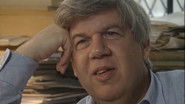
Interview with Stephen Jay Gould, American paleontologist and evolutionary biologist (in his office at the Museum of Comparative Zoology, part of the Harvard Museum of Natural History in Cambridge, Massachusetts, and in Jordan Hall of the New England Conservatory in Boston). Gould talks about sports, baseball, Joe DiMaggio, modern heroes and myths, science, evolution, the theory of evolution, humanity, childhood memories, eternity and infinity, beauty, regularity, calendars, scientific questions and answers, the land snail, biological diversity, death, Johann Sebastian Bach's 'St. John Passion', religion and music.
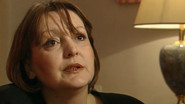
Interview with Dubravka Ugresic, Croatian writer. Using photos and excerpts from her books, Ugresic talks about the role of photos and photo albums in her life (it's about personal photos, not about the photo as part of visual art), why photos move her, about her memories of photos in her childhood and the influence of a photo of her father shortly after his death.
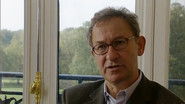
Interview with Simon Schama, British historian (in a room at The Ritz hotel on Piccadilly in London, overlooking Green Park). Schama talks about the beauty of history that he recognized as a child, his Jewish background, the necessity of history, because it offers a counterbalance to the dangerous limitations of the present and his poetic approach to history instead of finding out historical facts. Schama discusses a passage from his book 'Landscape and Memory' that is about his journey through Poland, from which his family was expelled.

Interview with Catherine Bott, British soprano and interpreter of medieval songs and operas (in the Main Hall of the Concertgebouw in Amsterdam). Bott talks about the acoustics of the Main Hall, the comforting power of music, her grandparents and parents, her childhood and school days, her health and hospitalization as a child, the Beatles, shyness, dialects, speech lessons, happiness, domestic life, reading, children's books, innocence, her partner/relationship, the musicality of the voice, the Salzburg Festival, pianist Radu Lupu, English 19th century songs, the funeral of a neighbor, and comfort and security.
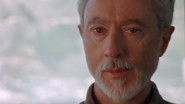
Interview with John Coetzee, South African writer (in a hotel room in downtown Cape Town and on Diaz Beach, South Africa). Coetzee talks about the complexity and meaning of beauty, aesthetics, marriage, authorship and the solace of writing, South Africa and the cruelty of the Apartheid system, human suffering, the solace of nature, his childhood, perfectionism, music, the flora and fauna of Diaz Beach, conservation, silence, innocence, discomfort, art, language, self-knowledge, his conception of heaven, the afterlife and death. Coetzee reads from his own work in the hotel room.
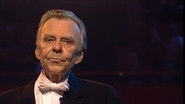
Richard Dufallo, American conductor, gave a concert entitled 'The concert of beauty and consolation' for 'Of beauty and consolation' on February 6, 2000 in Muziekcentrum Vredenburg in Utrecht, performed by the Radio Symphony Orchestra, with the help of the Groot Omroepkoor and soloists Thomas Randle, Jeni Bern and Birgit Remmert. In between the music fragments, Dufallo pays attention to the questions of what beauty lies and where and how man finds consolation, the essence of an artist and the composers Charles Ives, Igor Stravinsky and Gustav Mahler.
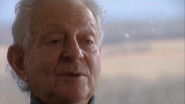
Interview with Leon Lederman, American experimental physicist (in the main building of the Fermi Laboratory near Batavia, Chicago area). Lederman talks about his passion for his work, Gauguin, Shakespeare, how he was able to prove his theory that the universe is not symmetrical, Niels Bohr's color spectrum theory, the beginning of quantum theory, Carl Anderson's discovery of the positive electron, his visualization of particles, the fact that no one has ever seen a particle or an atom, the cloud chamber, the theoretical search for the beginning of the universe, his image of the universe, the explosion that created the world, the importance of the disciplines of astrophysics and cosmology within the research into the origin of the universe.
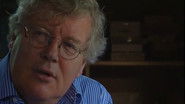
Interview with Rudi Fuchs, art historian (in the study of his home). Fuchs shows various postcards that he has collected over the years and talks about the beauty and comfort of postcards. According to him, they enable people to organize the world. He calls the postcard the primitive echo of works of art and continues to talk about the similarities between postcards and art, Albrecht Dürer and Rembrandt and their staging of beauty, Piet Mondrian, abstract art, Mondrian's 'Victory Boogie Woogie' and the beauty of this work, the comfort that Fuchs seeks in art, among other things, after the death of his good friend and sculptor Donald Judd and the gift of artists to view the world in a certain way.
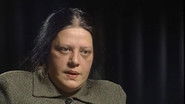
Interview with Tatjana Tolstaja, Russian writer and granddaughter of Leo Tolstoy. Tolstaja talks about her deceased father, who was a physicist and with whom she still keeps in touch despite his death, what she learned from him, including asking good questions about life, showing interest in life, the political history of Russia, human suffering, Lenin's politics, why she finds Russia fascinating, taking responsibility for your own life, what she finds comfort in, the universality of experiences, what she understands by harmony, the existence of a self-contained reality, her experience that she probably had multiple lives before this life, the feeling of immortality, her near-death experience, her belief in God, life after death, free will versus fate and the importance of humor and self-mockery in finding comfort.
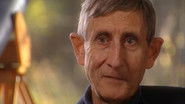
Interview with Freeman Dyson, British/American theoretical physicist (in the living room of his home in Princeton, New Jersey). Dyson talks about gamma-ray bursts, the secrets of the universe, solar eclipses (an example of pure beauty, according to Dyson), Stephen Hawking (also a theoretical physicist), the lack of a scientific understanding of beauty, the complexity of the brain, and the question of whether animals have a sense of beauty.
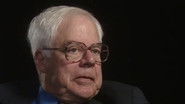
Interview with Richard Rorty, American philosopher (in a studio and in nature). Rorty talks about his childhood memories, escaping the "outside world" by reading books, his education, his need to order the chaotic world, Plato, his insight that philosophical systems offer neither structure nor beauty, teaching philosophy for a living, and the term postmodernism.
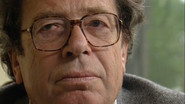
Interview with György Konrád, Hungarian writer (standing in a room of a canal house on the Zeedijk and looking out over the Oudezijds Voorburgwal in Amsterdam). Konrád talks about his interpretation of the concept of beauty, the human desire for eternity and the role that historiography plays in this, the reason why he writes, memories from his youth, his war experiences including his flight to Budapest at the age of eleven and his feelings of guilt about it, the persecution of the Jews, the limits of comfort, the realization of how transient life is and his advice not to take life too seriously.
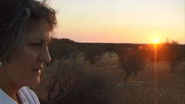
Germaine Greer, Australian writer, captures her native Australia with a camera for 'Of Beauty and Comfort', for her the only answer to the question of what beauty and comfort mean. Greer visits her sister Alida Jane Burke (botanist) in Western Australia and talks to her about the hard life and climate in Australia, the age, infertility and great biodiversity of the country, endangered plant species that are affected by fungal diseases and salt deposits, among other things.
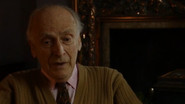
Interview with Yehudi Menuhin (at his home in Chester Square, London, and at a concert hall). Menuhin talks about the moment that represents the now and moves with us through time, composers who give him solace including Ludwig van Beethoven, especially his Ninth Symphony, the happiest moment in his life, his admiration for the Russian dancer Anna Pavlova and the strong resemblance of his second wife Diana to Pavlova.
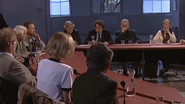
This episode consists of the gathering. Twenty of the portrayed guests come together for an evening-filling exchange of thoughts in the De Zaaijer gallery on the Keizersgracht in Amsterdam, preceded by a visit to the exhibition 'Of Beauty and Consolation' in the Stedelijk Museum in Amsterdam.


